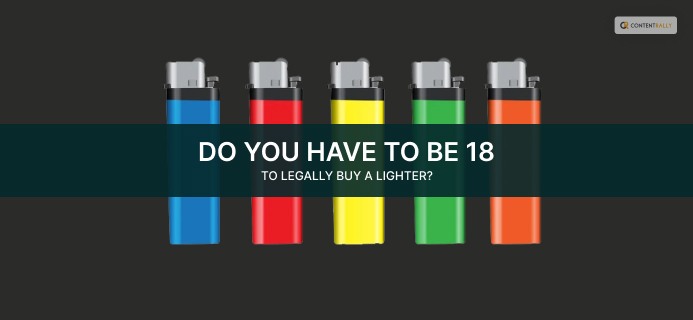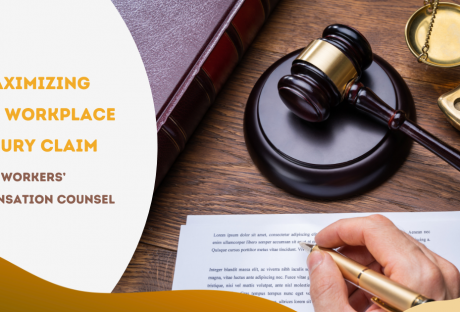How old do you have to be to buy lighters?
This question might seem a bit stupid, but I am glad that you are looking for the answer.
To be honest, carrying a lighter out of your kitchen or grill might signify that you are trying to light up one or two sticks. Also, people might feel that you are a smoker. Now, you know that you can not smoke until and unless you are 18 or 21.
So, here the question comes, “do you have to be 18 to buy a lighter?”
Here, in this article, we will help you find that.
Read More: 7 Things You Should Know About Owning a Vape
Do You Have To Be 18 To Buy A Lighter? – What Does That Mean

It is actually legal in most areas of the US to purchase a lighter for a minor. Here, I would also like to mention that often different stores are discrete when it comes to selling lighter, whether the buyer is going to use it for “lighting up a tobacco product” or not.
Here, another genuine concern plays a huge role. A lighter is a hazardous thing. So the concern is always there that without adult supervision, it can be dangerous for children or teenagers.
As per the law, in most places, you can legally without proving your age from a merchant who is willing to sell it. Here are some things that you might like to know.
- In reality, there is no age restriction on the selling of a lighter or matches in the United States. But a lot of stores do not sell lighters to minors.
- At the same time, it is also illegal to sell novelty lighters to any child. And it is effective in only some particular states.
- Here, all those non-novelty lighters which fulfill child safety requirements can be a savior or can be sold to children.
- So, you see, selling any substandard lighter or all those laughter which lack child-resistant mechanisms is completely illegal in most states.
- Victims of any type of defective lighters might file a lawsuit for personal injury claim at any point.
- As I have also mentioned earlier that it is also illegal to sell choking hazards to kids.
- In case any retailer sells a choking hazard to any child, that individual might face a “choking hazard lawsuit.”
How Old Do You Have To Be To Buy Lighters?
When you are looking for the answer to “how old do you have to be to buy lighters?” you must understand the concerns related to that.
You might buy a lighter at any age, legally. But at the same time, as per the United States Consumer Product Safety Commission, any lighter manufacturer needs to include child-safety mechanisms in their products.
So, when you are looking for an answer to the question, “how old do you have to be to buy a lighter?” you must have a complete understanding of different scenarios.
In addition to that, in case a child is using a lighter in order to commit any crime or in case a retailer sells a defective lighter, the seller might face civil action. We all are aware of the fact that a lot of states have laws that restrict the sale of ‘tobacco products to minors.
Here we like to mention that this specific grey area sometimes can be enforced at a store’s discretion. For example, they might think that they are not selling smaller cigarette lighter to minors, but at the same time, they might feel that it is completely fine to sell all those long-nose lighters.
Do You Have To Be 18 To Buy A Lighter?

In the above section, we have already discussed how old you have to be to buy lighters.
The thing is that you might purchase matches or lighter at any age. And it is because FDA does not consider matches and lighters as tobacco products. It means there are no particular regulations on the items.
Most states have explained the complete list of tobacco products long ago. And the list includes the following.
- Electronic cigarettes.
- Electronic pipes.
- Electronic cigars.
You might not know that as per Alabama code section 28- 11- 13, it is unlawful for all minors to buy, use, possess or even transport tobacco or any type of alternative nicotine product within Alabama.
On the other hand, it should not be unlawful for a minor employee who is working in a tobacco product, tobacco, or permit holder of alternative nicotine product in order to handle, sell, or transport tobacco products, tobacco, or alternative tobacco products.
But here, the employee has to act within the line and scope of the permit holder and employment. In case the employee is at least 21 years old, the process is free from all these complications.
At the same time, cigarette lighters are not considered a literal tobacco product.
In case it is a nicotine byproduct or product, it is always illegal to sell them to kids. In some particular states, this specific law is a little more of a grey area because cigarette lighter can fall under the category of ‘tobacco products.’
A Child Commits Arson: Will, The Store Owner, Be Liable?

Suppose any product is defective and you are the manufacturer. In this case, you will be held liable.
To keep it simple, product liability laws are a set of rules which is responsible for governing the distribution, sale, and manufacture of products. So, in case you are a retailer of lighters or a lighter manufacturer in the United States, all those laws must always meet the below-mentioned standards.
- The child-safety mechanism that is built into the lighter has to reset whenever any individual uses the product.
- A minimum of 85% of children who have tested the product must not be capable of doing the lighter work.
- The child resistance mechanism can not be easy to override.
- The child resistance mechanism of the lighters must work properly for the expected life of the same product.
Frequently Asked Questions (FAQs):
When it comes to legalities, we always have a lot of questions in our minds. And that is why here I am answering some of the most common questions that you might have in your mind. Let’s go through the answers now.
As per the latest New Minimum-Age Law that is effective from 1st September 2019, the legal age for buying lighters in Texas is 21 years before buying e-cigarettes, e-vapor products, and tobacco products, and there is no such age for lighters.
But a seller might face the consequences if they sell a lighter to a minor.
According to Section 2069, “civil penalties,” anyone who sells hazardous products to any child knowingly or violates prohibited acts that are mentioned in section 2068 is always subjected to civil penalties. However, the penalties will not exceed the range of $10000 for every violation.
As per section 720 ILCS 668/20, the penalty for selling any type of novelty lighters to any kid is a $500 fine for every offense.
We have already covered the answer to this question in the article above. Although the legal age is different for different states, there is no such legal age in most states. Here I would also like to mention that several laws and acts are there for this.
Be Careful!
Although there is no proper law regarding the age of buying a lighter. But there are different restrictions in different states. We have discussed that in the above article. It is always unlawful to sell lighters to minors also there is a risk of civil lawsuit in many cases.
Read More:






















